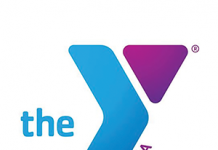
For the past decade, Ambassador Ronald and EileenÌıWeiserÌıhave prioritized improving Michiganâs educationÌısystem. Only 80 percent of the stateâs high school students are graduating â thatâs 4 percent less than the national average. At the time of our conversation, Ambassador Ronald, chairman of the Michigan Republican Party, was preoccupied with Michiganâs 2018 general election. However, Eileen, superintendent and member of the State Board of Education, gladly shared the husband-and-wife duoâsÌıplansÌıto create learning opportunities that are tailored to boys and girls across the state.
Give Detroit: You and your husband have donated roughlyÌı$80 million to more than 26 schoolsÌıand programs atÌıthe University of Michigan. What is your relationship with your alma mater?
Eileen Weiser: With a liberal arts education, you learn how to be a team player, fail at something, and then prevail. The knowledge that the university gave me became useful in navigating future projects, like renovating a scrap yard that went through environmental remediation. Today, Iâm currently chairing the Commission of Presidential Scholars, a committee that selects 151 of the top-performing students across the country that excel in the arts, careerÌıand technical education, as well as academics. Iâve been involved withÌıa variety of initiatives, even nonprofit or education-based, that I know I wouldnât have been prepared for if I not had the education I was fortunate to get. When youâre lucky enough to have an education that can make the world a better place, even if itâs a small part of the world, you automatically start thinking about how such a thing can be possible for those behind you.
Many of your donations focus on improving Michiganâs educationÌısystems.
Our primary focus has been on the University of Michigan, as we have relationships with both the administrators and professors, and understand the challenges they face. Iâm on the State Board of Education, so both Ronald and I are aware that colleges and universities can only start at the point at which K-12 leaves off. My priorities have been trying to find out what it takes to connect every child with an education that works for him or her andÌıleaves them prepared for life. Michigan currently is not providing this resource, and because of that, it limits the number of kids who are able to go on to post-secondary education. We are working to solve this issue andÌıprepare tomorrowâs leaders.
With your major financial gift to the University of Michigan Dearborn, the school was able to establish the Engineering Lab Building. Do you see a connection between this educational institution and the greater future of Detroit?
As a Michigan Science Center board member, Ron and I believe thatÌıMichiganâs heritage and employment base is directly tied to keepingÌıfamiliesÌıin state. Anything that develops orÌımaintains the strength of the stateâs employment base is of importance to us. University of Michigan DearbornÌıhas an incubator status for its proximity to Detroit, the Henry Ford, Ford Motor Co., and the entirety of the automotive industry in southeastern Michigan.ÌıThe automotive tradition is what made southeastern Michigan strong; this was before Driverly and autonomous vehicles, which will certainly shape our society over the next 50 years. The education and skills that come with being anÌıeffective engineer, regardless of how they are utilized, will continueÌıto be valued into the near and far future.
The Weiser Family Residential Scholarship Fund provides grants for students who lackÌıthe funds needed to achieve higher education.ÌıWhy is it important to give Detroitâs academically achieving students the scholarship they need to attend college?
Weâre finessingÌıa methodÌıto get every child into a K-16 or K-14 experience;Ìıan education that will help them obtainÌıa life that theyâre suited to lead. Far too often, kids are held back by education.ÌıAccording to the 2017 National Assessment of Educational Progress Report,ÌıMichiganâs white and African-American students who come from middle and upper-class economic backgrounds, ranked 49th in the country for their reading skills. People are unaware that our stateâs education system is not connecting with every child. ChildrenÌıliving inÌıinner cities and rural poverty are not the only ones at risk; itâs also students from wealthier backgrounds. In addition,Ìı29 percent of Michiganâs children who have Individual Education Plans, orÌıspecial-education students who haveÌıdysgraphia, dyslexia,Ìımild cognitiveÌıorÌılearning disabilities, drop out from high school. This number is substantial when compared to theÌınational average, which is 18 percent. Weâre one of a few states that the U.S. Department of Education singled out for intervention along with the Marshall Islands, and Washington, D.C. schools.
You also have contributed toward University of Michiganâs Project Healthy Schools, which focuses on studying pediatric cancer, food allergies, among other health-related issues. Why are you and your husband so passionate about supporting these causes?
Two of our five grandchildren have Type 1 diabetes, and others are severely affected by food allergies.ÌıThereâs very little funding for research on juvenile diabetes and our philanthropy answers the questions that areÌımoving medicine toward children who are affected by illnesses. Itâs the same sort of thing as educating children on to live as healthy as possible. These illnesses impact our family or people we care about and they impact children, so I guess that would be the common thread.
What is your personal philanthropic mission?
There are many issues that could be eased with minimal intervention. Weâve not matched providers andÌıeducators who want to help kids, and failed to provide the evidence-based reformsÌıthat areÌıneeded. These reforms have actually made a difference and proven to be effective. Iâm passionate about competency-based learning, which I think is the wave of the future for all schools. Youâre still demanding high standards, but youâre teaching, for example, geometry by having students build houses. Youâre never going forget geometry if you build a house. In addition, Habitat for Humanity teaches community building and connects people who have a need that you can help address. Students learn teamwork and all of the skills that you need to work effectively in the industries of the future. We should be connecting the dots on these two puzzles that seem like they have no similarities and see if thereâs a new, cost-effective, and smarter way of providing better outcomes than what weâre doing right now.
What does it mean to you and your husband to be receiving the Association of Fundraising Professionalsâ Max Fisher award?
Max Fisher was a legend, an extraordinary human being and a delightful person, who was also complicated and challenging. The fact that the award is named after him with all he did is extraordinary for us. Weâre not good at being recognized â we like being under the radar â but thisÌıis an extraordinary honor for us and weâre obviously humbled and appreciative.
For more information, visitÌı
¸é±ğ±ô²¹³Ù±ğ»å:ÌıAFP Interview Series: Nominee Detroit Feedback Loop
|
| Ìı |
|








